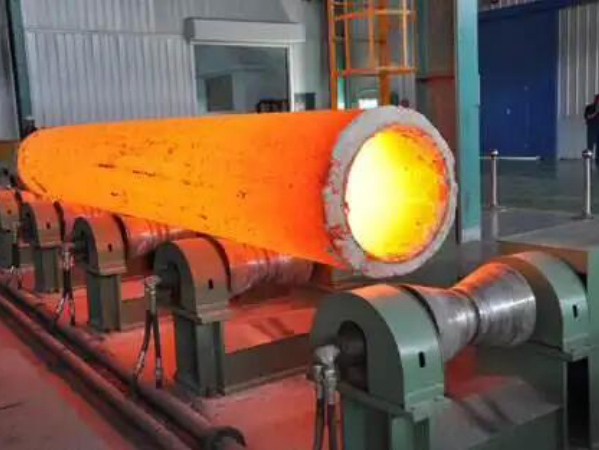- All
- Product Name
- Product Keyword
- Product Model
- Product Summary
- Product Description
- Multi Field Search
Views: 19 Author: Site Editor Publish Time: 2024-08-08 Origin: Site








Corrosion is a major concern in the oil and gas industry, particularly for tubing and casing pipes that must withstand harsh environments. Ensuring the longevity and reliability of these components is critical, and this is where corrosion prevention technologies come into play. This article will explore various corrosion prevention methods for API 5CT tubing and casing pipes, including those used for couplings, to enhance their performance and extend their service life.
Corrosion can compromise the structural integrity of tubing and casing pipes, leading to potential failures that can jeopardize well operations. Preventing corrosion is essential to maintain the strength and durability of these critical components.
Corrosion-related failures can result in leaks or blowouts, posing significant safety hazards. Effective corrosion prevention technologies help mitigate these risks, ensuring safer drilling and production operations.
By minimizing corrosion, the frequency and cost of maintenance and replacements can be significantly reduced. This leads to more efficient operations and lower overall operational expenses.
Epoxy coatings provide a robust barrier against corrosive elements. They are widely used due to their excellent adhesion properties and resistance to chemicals and moisture. Applying epoxy coatings to the interior and exterior surfaces of tubing and casing pipes can significantly reduce corrosion risks.
Polyurethane coatings offer excellent flexibility and abrasion resistance, making them suitable for environments where mechanical wear and tear are a concern. These coatings also provide effective protection against chemical corrosion.
Ceramic linings are highly resistant to wear and corrosion. Although more expensive than other coatings, they offer superior protection, particularly in high-temperature and high-pressure environments.
Cathodic protection using sacrificial anodes involves attaching a more easily corroded metal to the pipe. The anode corrodes instead of the pipe, providing a layer of protection. This method is cost-effective and widely used in protecting submerged and buried pipelines.
Impressed current systems use an external power source to provide a continuous flow of current to the pipe, preventing corrosion. This method is particularly effective for large structures and pipelines, offering more controlled and long-term protection compared to sacrificial anodes.
Corrosion inhibitors are chemicals injected into the well to reduce the corrosion rate of metal surfaces. These inhibitors form a protective film on the metal surface, preventing corrosive substances from reaching the pipe material. They are particularly useful in environments where coatings and cathodic protection may not be feasible.
Stainless steel offers superior corrosion resistance compared to carbon steel. API 5CT specifies several grades of stainless steel that are suitable for corrosive environments. While more expensive, stainless steel tubing and casing can provide long-term benefits by significantly reducing corrosion-related issues.
CRAs, such as nickel-based alloys, provide excellent resistance to corrosion in aggressive environments. These materials are used in highly corrosive applications where conventional materials would fail. Although costly, their use can be justified by the extended service life and reduced maintenance costs.

Zinc plating is a common method for protecting couplings from corrosion. The zinc coating acts as a sacrificial layer, corroding in place of the underlying metal. This method is cost-effective and provides good protection in less aggressive environments.

Phosphating creates a phosphate coating on the coupling surface, enhancing its corrosion resistance and providing a better base for subsequent painting or coating applications. This method is commonly used for couplings to improve their durability.
Using sealing compounds in the threaded connections of couplings can prevent moisture and corrosive substances from penetrating the threads. These compounds provide an additional layer of protection, ensuring the longevity of the coupling connections.

Heat treatment processes, such as quenching and tempering, can improve the corrosion resistance of couplings. These processes enhance the mechanical properties of the metal, making it more resistant to corrosive environments.

Corrosion prevention is vital for ensuring the durability and reliability of API 5CT tubing, casing pipes, and couplings. By employing a combination of coatings, cathodic protection, corrosion inhibitors, and advanced materials, the oil and gas industry can significantly extend the service life of these critical components. Companies like Jiangsu Changbao Taobang Petroleum Pipe Co., Ltd. exemplify the commitment to quality and innovation in this field, producing high-performance coupling products that adhere to industry standards. As technology continues to advance, the development of more effective corrosion prevention methods will further enhance the safety and efficiency of oil and gas operations.
OCTG Couplings: The Critical Connector in Oilfield Operations
Quality Inspection of OCTG Couplings: A Critical Link in Petroleum Extraction Safety
Premium OCTG Connections: The Key To Enhanced Well Integrity And Efficiency
Exploring OCTG Couplings: Types And Their Roles in The Oil And Gas Industry
Understanding OCTG Couplings: The Unsung Heroes of Oil And Gas Pipelines
What Is OCTG Coupling: The Critical Connector in The Oil And Gas Industry